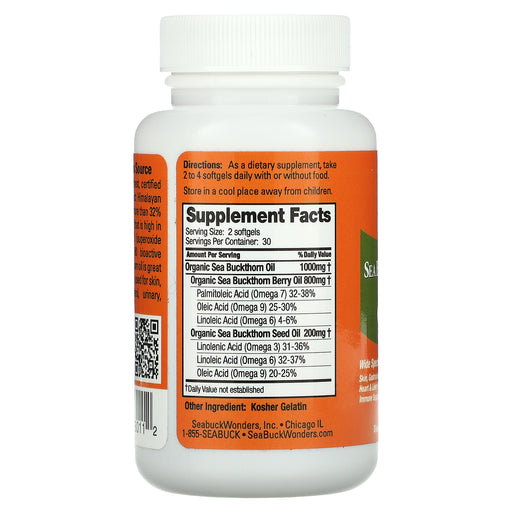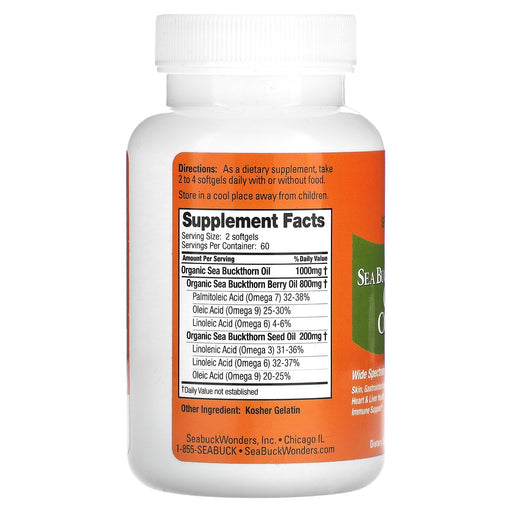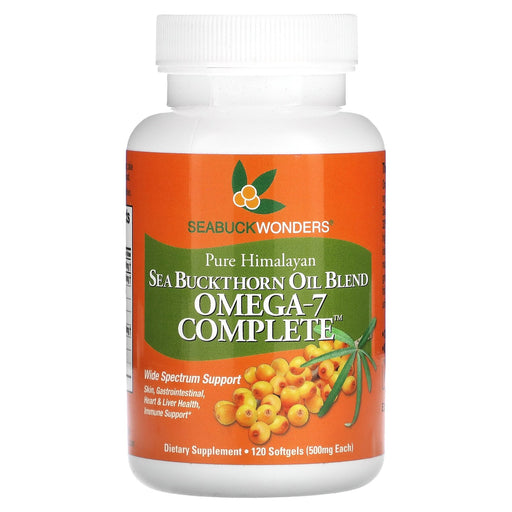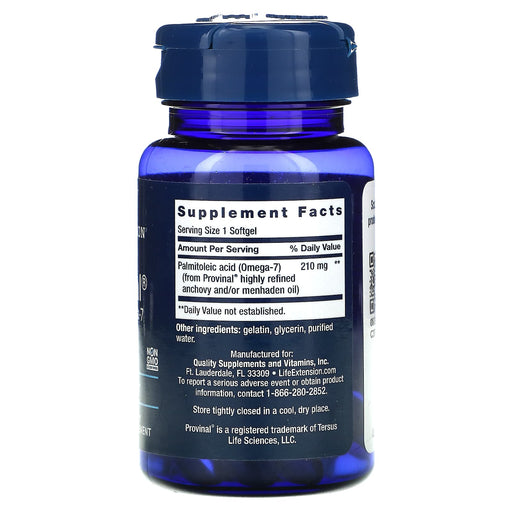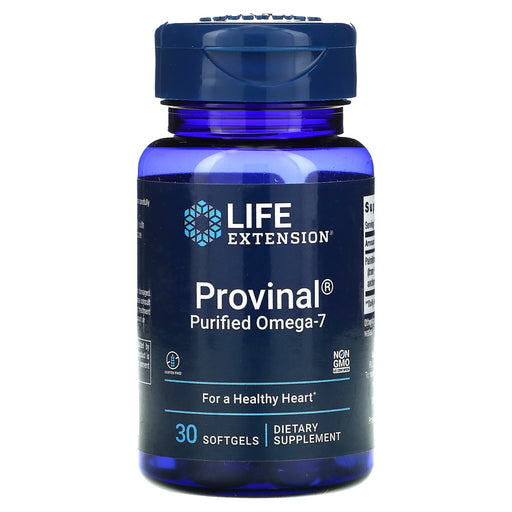
Unleash the Untapped Potential of Omega-7: The Emerging Essential Fatty Acid for Optimal Health
Omega-7, a lesser-known but increasingly important member of the essential fatty acid family, has recently gained attention for its potential to support various aspects of health, including cardiovascular function, skin and mucous membrane health, and metabolic wellness. The most common form of omega-7, palmitoleic acid, is found naturally in certain foods like macadamia nuts and sea buckthorn berries, but can also be obtained through high-quality supplements. By incorporating omega-7 into your daily nutrition regimen, you can experience the emerging benefits of this unique fatty acid, promoting overall health and well-being.
The Potential Health Benefits of Omega-7
While research on omega-7 is still in its early stages compared to the extensive studies on omega-3 and omega-6 fatty acids, a growing body of evidence suggests that omega-7 may offer a range of potential health benefits, including:
- Cardiovascular Support: Omega-7 has been shown to help maintain healthy cholesterol levels, support proper triglyceride balance, and promote healthy blood vessel function, all of which contribute to overall cardiovascular health.
- Skin and Mucous Membrane Health: Omega-7 plays a role in maintaining the integrity and hydration of the skin and mucous membranes throughout the body, including the eyes, mouth, and digestive tract. Adequate omega-7 intake may help to support skin elasticity, reduce dryness, and promote overall skin health.
- Metabolic Wellness: Some studies suggest that omega-7 may help to support healthy insulin sensitivity and glucose metabolism, promoting overall metabolic health and reducing the risk of metabolic disorders.
- Anti-Inflammatory Effects: Omega-7 has been shown to possess anti-inflammatory properties, helping to reduce chronic inflammation throughout the body and support overall health and well-being.
- Gastrointestinal Health: By supporting the health and integrity of the mucous membranes in the digestive tract, omega-7 may help to promote healthy digestion, reduce inflammation, and support overall gastrointestinal well-being.
Choosing the Right Omega-7 Supplement
When selecting an omega-7 supplement, it's essential to choose a high-quality product from a reputable brand to ensure purity, potency, and safety. Some key factors to consider when choosing an omega-7 supplement include:
- Source and Purity: Look for omega-7 supplements that are derived from high-quality sources, such as purified fish oil or sea buckthorn berries, and are free from contaminants and impurities.
- Concentration and Dosage: Select supplements that provide a standardized amount of omega-7 per serving, typically in the form of palmitoleic acid. Follow the recommended dosage instructions provided by the manufacturer or your healthcare professional.
- Complementary Ingredients: Some omega-7 supplements may include additional ingredients that work synergistically to support specific health goals, such as omega-3 fatty acids for cardiovascular health or antioxidants for skin health.
- Brand Reputation and Third-Party Testing: Choose supplements from reputable brands that have a history of producing high-quality products and that engage in third-party testing to ensure purity, potency, and safety.
- Professional Guidance: Consult with a healthcare professional, such as a registered dietitian or integrative medicine practitioner, to determine if omega-7 supplementation is appropriate for your individual health needs and goals.
Incorporating Omega-7 into Your Overall Health and Wellness Plan
To maximize the potential benefits of omega-7 and support overall health and well-being, consider the following tips for incorporating this essential fatty acid into your daily routine:
- Combine with a Balanced Diet: While omega-7 supplements can help to fill potential nutritional gaps, they should be used in conjunction with a balanced, whole-food-based diet that includes a variety of healthy fats, such as those found in nuts, seeds, avocados, and fatty fish.
- Pair with Omega-3s: Omega-7 works synergistically with omega-3 fatty acids to support cardiovascular health, skin health, and overall well-being. Consider taking omega-7 in combination with a high-quality omega-3 supplement, such as fish oil or algal oil.
- Support Skin Health from Within: In addition to using topical skincare products, incorporating omega-7 into your diet or supplement regimen can help to nourish and hydrate the skin from the inside out, promoting a more youthful, radiant complexion.
- Monitor and Adjust: Pay attention to your body's response to omega-7 supplementation, and work with your healthcare provider to adjust your dosage or frequency as needed to optimize your individual results and benefits.
Experience the Emerging Power of Omega-7 for Your Health and Well-Being
At Health Orchard, we are dedicated to providing our customers with the highest quality omega-7 supplements to support cardiovascular health, skin and mucous membrane health, metabolic wellness, and overall well-being. Our carefully curated selection features omega-7 products from trusted brands, formulated with pure, potent ingredients for optimal efficacy and safety.
Whether you're looking to promote healthy cholesterol and triglyceride levels, support skin hydration and elasticity, or optimize your metabolic health, our omega-7 supplement collection has the perfect product to help you unleash the untapped potential of this emerging essential fatty acid.
Witness the potential of omega-7 and experience the difference it can make in your journey towards optimal health and vitality. Browse our selection today and take the first step towards harnessing the power of this unique and promising nutrient for your lifelong well-being.
Frequently Asked Questions about Omega-7
1. What is omega-7 used for?
Omega-7, also known as palmitoleic acid, is a monounsaturated fatty acid that has been linked to several potential health benefits. Some of the main uses of omega-7 include:
- Supporting healthy skin, hair, and nail growth
- Promoting heart health by maintaining healthy cholesterol levels and reducing inflammation
- Supporting digestive health and reducing inflammation in the gut
- Helping to regulate metabolism and maintain healthy body weight
- Improving insulin sensitivity and supporting healthy blood sugar levels
2. Which foods contain omega-7?
Omega-7 is found naturally in several food sources, including:
- Sea buckthorn berries and oil
- Macadamia nuts and oil
- Avocados
- Olive oil
- Coldwater fish, such as salmon, anchovies, and sardines
- Grass-fed dairy products, like milk and cheese
While these foods contain omega-7, the amounts may not be sufficient to achieve therapeutic benefits, which is why some people turn to omega-7 supplements.
3. Is it safe to take omega-7 everyday?
Omega-7 supplements are generally considered safe when taken in recommended doses. However, as with any supplement, it's essential to consult with a healthcare professional before starting a daily regimen, especially if you have pre-existing health conditions or are taking medications. Some people may experience mild side effects, such as digestive discomfort, when first taking omega-7 supplements. It's also important to choose high-quality supplements from reputable brands and follow the recommended dosage instructions to ensure safety and efficacy.
4. Is omega-7 the same as fish oil?
No, omega-7 is not the same as fish oil. Fish oil primarily contains omega-3 fatty acids, such as EPA (eicosapentaenoic acid) and DHA (docosahexaenoic acid), which are known for their anti-inflammatory and heart-healthy properties. While some fish oil supplements may contain small amounts of omega-7, it is not the main active ingredient. Omega-7 is a monounsaturated fatty acid that is found in different food sources and has its own unique set of potential health benefits.
5. Which is better, omega-3 or 7?
Both omega-3 and omega-7 fatty acids offer unique health benefits, and it's not accurate to say that one is better than the other. Omega-3s, particularly EPA and DHA, are well-known for their anti-inflammatory properties and support for heart, brain, and eye health. Omega-7, on the other hand, has been linked to benefits for skin health, metabolic function, and digestive health. Ultimately, the best choice depends on your individual health needs and goals. Consulting with a healthcare professional can help you determine which fatty acid or combination of fatty acids is most appropriate for your situation.
6. Is omega-7 good for the body?
Yes, omega-7 has been linked to several potential health benefits for the body. Some of the ways omega-7 may support overall health include:
- Promoting heart health by maintaining healthy cholesterol levels and reducing inflammation
- Supporting healthy skin, hair, and nail growth
- Improving digestive health and reducing inflammation in the gut
- Helping to regulate metabolism and maintain healthy body weight
- Enhancing insulin sensitivity and supporting healthy blood sugar levels
However, more research is needed to fully understand the extent of omega-7's benefits and the optimal dosages for various health conditions.
7. Is omega-7 good for heart?
Omega-7 has shown promise in supporting heart health, particularly in maintaining healthy cholesterol levels and reducing inflammation. Some studies suggest that omega-7 may help:
- Raise levels of HDL (good) cholesterol
- Lower levels of LDL (bad) cholesterol and triglycerides
- Reduce inflammation in the blood vessels, which is a risk factor for heart disease
- Improve endothelial function, which helps regulate blood pressure and blood clotting
However, more research is needed to fully understand the effects of omega-7 on heart health and determine the optimal dosages for cardiovascular support.


